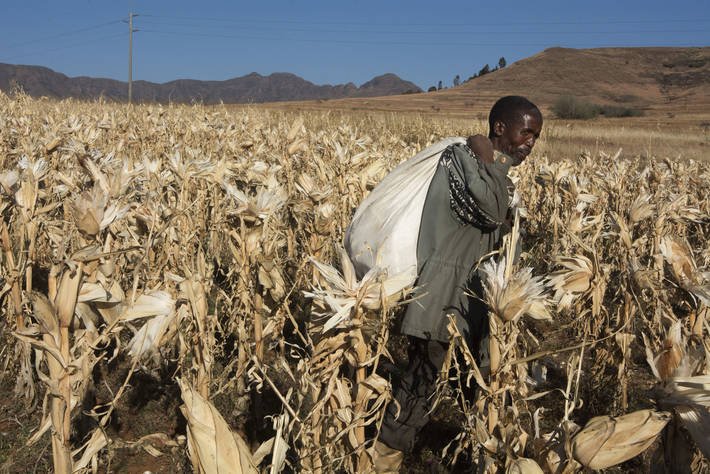FAO released an assessment highlighting profound impact of disasters, exacerbated by climate change, pandemics, epidemics, & armed conflicts, on global agriculture & food security.

The Food and Agriculture Organization of the United Nations (FAO) has released a comprehensive assessment highlighting the profound impact of disasters, exacerbated by climate change, pandemics, epidemics, and armed conflicts, on global agriculture and food security.
The report underscores the critical need for “urgent action… to prioritize the integration of multisectoral and multihazard disaster risk reduction strategies into agricultural policies and programs.”
Entitled ‘The Impact of Disasters on Agriculture and Food Security: Avoiding and Reducing Losses Through Investment in Resilience,’ this flagship report is a crucial component of worldwide endeavors to gauge progress towards a more sustainable future.
It aligns with events such as the 2023 SDG Summit, the midterm review of the Sendai Framework for Disaster Risk Reduction 2015-2030, and the inaugural Global Stocktake (GST) of the Paris Agreement on climate change at the UN Climate Change Conference (UNFCCC COP 28), as well as the 2024 Summit of the Future.
The report defines disasters as “serious disruptions to the functioning of a community or society.” Their frequency and severity have surged over the years, escalating from 100 events annually in the 1970s to approximately 400 events per year in the past two decades. These disasters are now impinging on agrifood systems, jeopardizing food security, and jeopardizing the sustainability of the agriculture sector.
Over the past three decades, disasters have resulted in an estimated loss of USD 3.8 trillion in crops and livestock production. This equates to an average annual loss of USD 123 billion, constituting 5% of the global agricultural gross domestic product (GDP).
Lower-income countries (LICs) and lower-middle-income countries (LMICs) have borne the brunt, experiencing losses ranging from 10-15% of their total agricultural GDP. During the same period, small island developing States (SIDS) have suffered nearly 7% loss in their agricultural GDP.
To fortify resilient agrifood systems, understanding interconnected and systemic risks, as well as underlying disaster risk drivers, is paramount. The report emphasizes that “proactive and timely interventions” can enhance resilience by preempting and mitigating risks in agriculture.
For instance, the report cites the successful anticipatory and preventive measures taken against the desert locust outbreak in the Horn of Africa in 2020-2021, which demonstrated favorable benefit-to-cost ratios for investing in disaster prevention and resilience.
The report advocates for:
- Enhancement of data and information regarding the impacts of disasters in agriculture.
- Integration and mainstreaming of multisectoral and multihazard disaster risk reduction (DRR) approaches into policymaking and decision-making processes.
- Investments in resilience to curtail disaster risk in agrifood systems.
The FAO’s report serves as a clarion call to fortify global efforts in safeguarding agriculture and food security amidst mounting challenges posed by disasters and climate-related disruptions. It underscores the urgency for coordinated, strategic, and forward-looking measures to protect the foundation of our food systems.